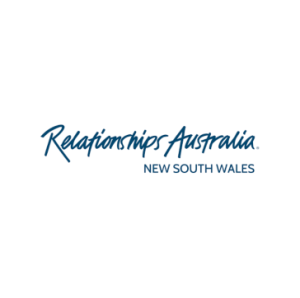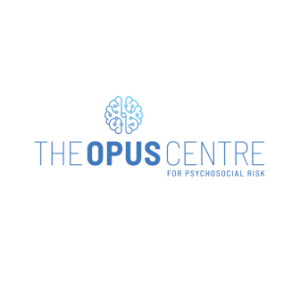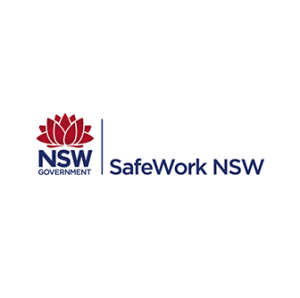Overwork and Underwork
Sustainable, healthy work is just as important to organisational health as it is to individual wellbeing.
Frequent, prolonged, or severe periods of high and low job demands can each have a significant impact on wellbeing at work. Healthy workplaces are designed to find balance: challenge and engagement, without exceeding physical, emotional, or mental capacity.


Kevin St Mart
Kevin St Mart is a workplace mental health expert with over 24 years of experience in work health and safety and is a consultant for the Opus Centre for Psychosocial Risk. With qualifications in Business, Injury Management and Training & Assessment Kevin has a well-rounded understanding of best practice management of mental health in businesses of all sizes.
Kevin previously worked at Beyond Blue as a Workplace Engagement Manager providing training, presentations and advice to workplaces across Australia. He also led a mental health program team at the National Health and Safety Regulator Comcare, working with Public Service and large national organisations to deliver mental health training, presentations, projects and worked on cross jurisdictional mental health initiatives such as the development of the People at Work risk assessment tool and the Mentally Healthy Workplace Alliance.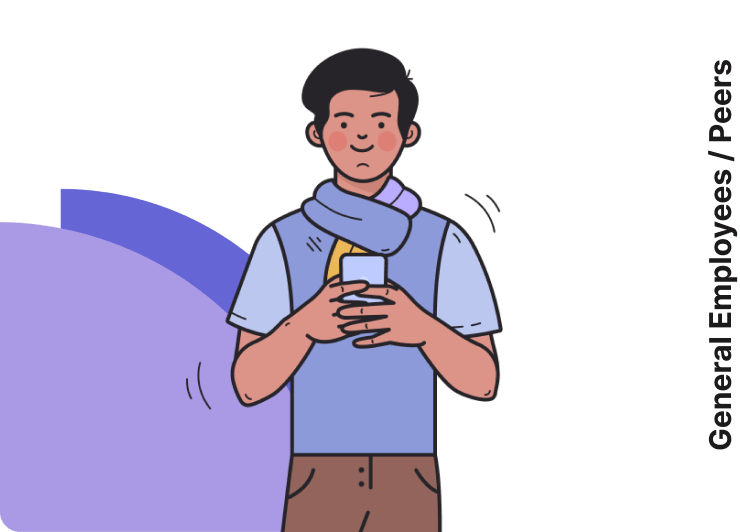
Proactive communication with peers regarding personal work boundaries and the importance of regular breaks is crucial. Also, by fostering a culture of mutual support, where a team member assists others when they have more free time, seeking help when overwhelmed becomes less daunting.
Monitor each other for signs of burnout or disengagement, and encourage each other to speak up when feeling overwhelmed or under-stimulated.
If a peer seems overworked or under-engaged, offer personal support, suggest they talk to their supervisor, or if appropriate, recommend professional resources.

Set clear and reasonable expectations around job expectations, regularly check in with team members about their workload, provide constructive feedback, and foster an environment where employees feel comfortable discussing their capacity.
Monitor team members for signs of burnout or disengagement and adjust workloads accordingly. Regularly review workloads and deadlines to ensure they are reasonable.
Think about instances of when individuals might become over/underworked (n collaboration with the team member). Formulate a plan ahead of time as to how best to support individuals if they are feeling over / under worked.
Adjusting workloads, offering opportunities to do more/less depending on needs.
It might be important to respond to the negative emotional response from being over/under worked. If there is a strong sense of trust between the individual and the manager, it can be possible for the manager to ask the individual what would be helpful to support them at this time.

A good balance can afford individuals with new opportunties, both building individual wellbeing and their future ability to be productive. This might include opportunties to learn skills for further professional development.
Not only celebrate an individual's productivity, but celebrate individuals who has a healthy balance between work and personal health.
Have methods/measures in place to identify when a person might be close to overburdened / underworked, so that arising situations can be prevented.
Should a situation be predicted, steps can be taken. This can include: clearly define job role and expectations, the option for flexible work hours, scheduling small breaks on an organisation level, finding temporary assistance or outsouring certain tasks during peak times.
Direct individuals resources such as Employee Assistance Programs (EAPs) or free phone support (Hear2Talk) for those struggling with work-life balance. Reassess the priorities given to certain tasks, adjust workloads or roles as needed.

Government Agencies have produced many legislations, policies, resources and tools to help with workplace wellbeing. Examples are given for those in NSW only, do look around for similar resources in your state.
- For Employers: NSW Government offers a free Workplace Wellbeing Assessment Tool
- For Employers: The Public Service Commission also has a package of resources in this area.
- For Small Businesses: The NSW Government also funds a one-on-one coaching program. This is available for free to small business owners.
- SafeWork has resources which many of the topics covered in this initiative, including: Relationships, Over/Underwork, and much more.
There is a lot of informational resources and free support options from organisations outside those you work for. Examples are given for those in NSW only, do look around for similar resources in your state.
Informational Resources
- For Relationships: Relationship Australia NSW
- For Over/Under Work: The Opus Centre
- For Life Transitions: Transitioning Well and their Career Transition Series
A range of paid and cost effective support options are available to you. Examples are given for those in NSW only, do look around for similar resources in your state.
- Professional mental health services: For guidance in the mental health services within NSW, make a free call to the WayAhead Mental Health Directory
- Other professionals may be able to help for other specific needs, such as legal support, financial support etc.
- Coaches and other Educators can give positive skills and guidance in specific areas
 General Employees / Peers
General Employees / Peers

Building positive wellbeing
Proactive communication with peers regarding personal work boundaries and the importance of regular breaks is crucial. Also, by fostering a culture of mutual support, where a team member assists others when they have more free time, seeking help when overwhelmed becomes less daunting.
Preventing possible harms
Monitor each other for signs of burnout or disengagement, and encourage each other to speak up when feeling overwhelmed or under-stimulated.
Addressing existing harms
If a peer seems overworked or under-engaged, offer personal support, suggest they talk to their supervisor, or if appropriate, recommend professional resources.
 Managers and Leaders
Managers and Leaders

Building positive wellbeing
Set clear and reasonable expectations around job expectations, regularly check in with team members about their workload, provide constructive feedback, and foster an environment where employees feel comfortable discussing their capacity.
Preventing possible harms
Monitor team members for signs of burnout or disengagement and adjust workloads accordingly. Regularly review workloads and deadlines to ensure they are reasonable.
Brainstorm instances of when someone might become over/underworked (in collaboration with the team member). Formulate a plan ahead of time as to how best to support them should they feel over / under worked.
Addressing existing harms
Adjusting workloads, offering opportunities to do more/less depending on needs.
It might be important to respond to the negative emotional response from being over/under worked. If there is a strong sense of trust between the individual and the manager, it can be possible for the manager to ask the individual what would be helpful to support them at this time.
 The Organisation / Employer
The Organisation / Employer

Building positive wellbeing
A good balance can afford individuals with new opportunties, both building individual wellbeing and their future ability to be productive. This might include opportunties to learn skills for further professional development.
Not only celebrate an individual's productivity, but celebrate individuals who has a healthy balance between work and personal health.
Preventing possible harms
Have methods/measures in place to identify when a person might be close to overburdened / underworked, so that arising situations can be prevented.
Should a situation be predicted, steps can be taken. This can include: clearly define job role and expectations, the option for flexible work hours, scheduling small breaks on an organisation level, finding temporary assistance or outsouring certain tasks during peak times.
Addressing existing harms
Direct individuals resources such as Employee Assistance Programs (EAPs) for those struggling with work-life balance. Reassess the priorities given to certain tasks, adjust workloads or roles as needed.
 Government and External support
Government and External support

Governmental Support
Government Agencies have produced many legislations, policies, resources and tools to help with workplace wellbeing. Examples are given for those in NSW only, do look around for similar resources in your state.
- For Employers: NSW Government offers a free Workplace Wellbeing Assessment Tool
- For Employers: The Public Service Commission also has a package of resources in this area.
- For Small Businesses: The NSW Government also funds a one-on-one coaching program. This is available for free to small business owners.
- SafeWork has resources which many of the topics covered in this initiative, including: Relationships, Over/Underwork, and much more.
External Support
There is a lot of informational resources and free support options from organisations outside those you work for. Examples are given for those in NSW only, do look around for similar resources in your state.
Informational Resources
- For National Insights: Superfriend
- For Relationships: Relationship Australia NSW
- For Over/Under Work: The Opus Centre
- For Life Transitions: Transitioning Well and their Career Transition Series
Paid Support Options
A range of paid and cost effective support options are available to you. Examples are given for those in NSW only, do look around for similar resources in your state.
- Professional mental health services: For guidance in the mental health services within NSW, make a free call to the WayAhead Mental Health Directory
- Other professionals may be able to help for other specific needs, such as legal support, financial support etc.
- Coaches and other Educators can give positive skills and guidance in specific areas
If in doubt, seek support:
Here2Talk is a free over the phone service where you can get confidential support from experienced peer workers to manage feelings of stress, anxiety and burnout that are impacting your work and everyday life.
We All Have a Role to Play
3 October
Interpersonal Relationships
10 October
Overwork and Underwork
17 October
Life Transitions
24 October
An Evolution in Work, Health, & Safety
31 October
Endorsing Partners


Proudly supported by


